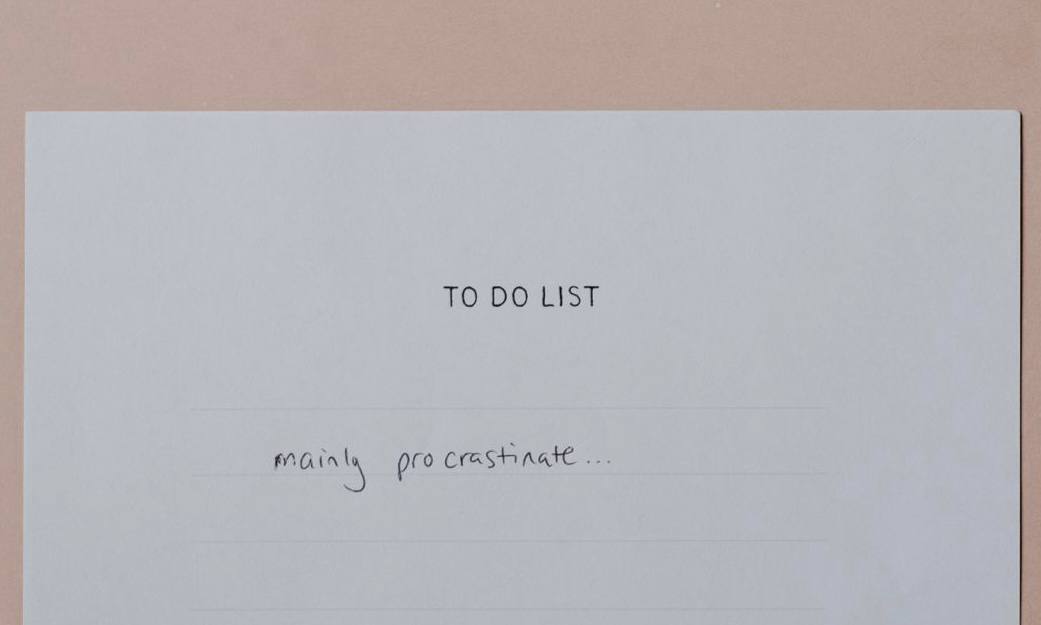“TODAY I don’t feel like doing anything. I just wanna lay in my bed.”
You have probably listened to Bruno Mars’ hit song The Lazy Song more than a decade ago, but it’s still relevant to this day, right?
This is the anthem of most, if not all, students today, who are currently studying whether online, physical, or hybrid classes
One of them is JC Poblete, who has become the “Certified Procrastination King” during online classes.
According to Poblete, he noticed that his speed at doing his school work, compared to the pre-pandemic years, slowed down at the height of the enhanced community quarantine.
Unproductive lifestyle
“I have observed that my speedy performance before the pandemic is way more active compared to pandemic years. Since the start of online classes, I felt a weakening force dragging me not to do anything,” said Poblete.
He said that he thought it was just because of the load of the school work that made him feel exhausted, but that kind of behavior progressed more.
Poblete also considered not enrolling for the next semester after learning that all schools across the country are still prohibited from holding face-to-face classes in August 2020, but he was forced to enroll for the sake of graduating on time.
“I made myself sure that I would perform better, but after a month in the first semester, I came back being unproductive, tired and procrastinating because I don’t feel motivated to continue,” said Poblete.
As per Poblete, he procrastinates not because he’s lazy, but because during the pandemic, he became emotionally unfit due to isolation brought about by the pandemic.
What does the research say?
In a recently published study by the JAMA Network Open, some 3,525 college students who participated in the study revealed that procrastination among their cohort is associated with worse subsequent mental health problems, including depression, anxiety, and stress symptom levels after nine months of studying their behaviors.
The result also showed that students who procrastinate reveal having disabling pain, unhealthy lifestyles like poor sleep quality and inadequate physical activity, and worse, high levels of psychosocial health indicators, including higher levels of loneliness and economic struggles, which were the reasons considered why students procrastinate
“Considering that procrastination is prevalent among university students, these findings may be of importance to enhance the understanding of students’ health,” the researchers said.
However, the research revealed that there is no clear scientific evidence to associate subsequent disabling pain to procrastination, it said.
Connection between procrastination and depression
In a report from Solving Procrastination, a passion project that aims to educate about solving procrastination, said that procrastination can be a result of depression in a number of ways, including:
- Making individuals experience fatigue or exhaustion
- Making it more difficult for them to focus.
- Decreasing their drive.
- Lowering their sense of self.
- Increasing their inclination to dwell or brood, as seen, for instance, in their concern with traumatic memories from the past.
- Causing them to worry more, which may result in problems like feeling overburdened.
Characteristics of depressed procrastinators
The report also said that Individuals who postpone significantly and do so primarily as a result of their sadness are known as depressed procrastinators. As a result, they typically procrastinate due to problems like loss of interest in activities, lack of desire, exhaustion, and attention problems.
Also, illogical beliefs, pessimism, acquired helplessness, and neuroticism are common symptoms of linked conditions among depressed procrastinators. They are also more likely to have low levels of resilience-building traits including self-compassion, mindfulness, self-esteem, and self-efficacy, it said.
Managing procrastination caused by depression
The report likewise said that procrastinators can do these tips to stop procrastinating:
Divide your work into doable, little pieces.
For instance, you can break down a major project that feels daunting into a number of manageable parts, such as developing an outline, locating pertinent materials, and writing the introduction.
Allow yourself to learn from your mistakes.
For instance, if you’re discussing a topic, realize that it won’t be great, especially the first time around.
Recognize your fears and take steps to overcome them.
You can convince yourself that someone’s opinion doesn’t matter if, for instance, you discover that you’re terrified of receiving unfavorable criticism from someone who isn’t very significant.
Go from one work to another.
As an illustration, if you find yourself unable to go forward on a chore, switch to another one and stay there until you are prepared to return to the initial one.
To maximize productivity, plan your work around it.
You should arrange creative chores as much as possible for the morning, for instance, if you find that time to be easier for concentration.
Boost your social support system.
You can choose a mentor to follow or a boss to hold you accountable, or you can surround yourself with like-minded individuals who inspire you to move forward while avoiding those who stress you out.
Get proper sleep
If you must concentrate diligently on jobs that demand intense focus, be sure to take enough pauses to prevent burnout.
Banner Photo Credit: Annie Spratt, via Unsplash








